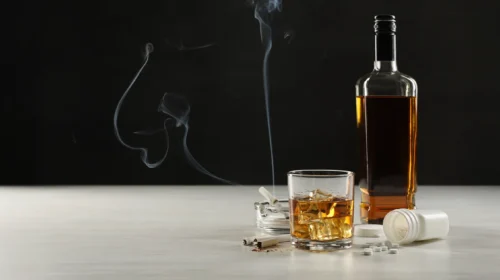Knowing the signs of meth addiction and how to help yourself or your loved one very quickly becomes a matter of life and death. The Center for Disease Control and Prevention (CDC) indicates that methamphetamine (meth) is among the top five illicit drugs most commonly involved in overdose fatality, contributing to over six percent per year. In addition to overdose, meth addiction is linked to a variety of serious diseases, such as HIV, hepatitis, certain types of cancer, oral diseases, and many more. Understanding the signs of meth addiction and how to get help guide you or your loved one toward recovery and a healthier future. Here are some insights that can guide you in your journey.
Why Do People Start Using Meth?
People start using meth for a variety of reasons. Many start using it socially or out of experimentation; others use it to cope with trauma; others use it because they start abusing prescription stimulants, like Ritalin® (methylphenidate) or Adderall® (amphetamine, dextroamphetamine mixed salt) and switch to homegrown illicit meth after they’re no longer to obtain their supply from a physician or street-level dealer.
Methamphetamine is available through a prescription to treat conditions like attention deficit and hyperactivity disorder (ADHD) and narcolepsy under the drug Desoxyn® (methamphetamine hydrochloride). The reality is, however, that medical prescribing of meth is relatively rare. Whatever the reason you or your loved one may start using meth, it’s very easy to develop a physiological dependency that can lead to addiction.
What Are the Long-Term Effects of Meth Abuse?
While long-term side effects of meth abuse will vary, according to each person’s physiology, use history, and other factors, some of the more common can include:
- Dependency and Addiction
- Psychosis (Paranoia, Hallucinations, Delusions, Etc.)
- Repetitive Motor Activity
- Changes in Brain Structure and Function
- Impaired thinking and Motor Skills
- Increased Distractibility
- Memory Loss
- Aggressive or Violent Behavior
- Severe Mood Disturbances
- Severe Dental Problems
- Weight Loss
The longer meth use persists, the more these problems are likely to escalate. Meth abuse can also lead to an increased risk of heart attack, stroke, chest pain, seizures, respiratory issues, dilated pupils, and much more. It’s important to get proper medical help for these conditions as they emerge either during or after treatment for meth abuse. This is a legitimate medical issue that demands the help of trained doctors and nurses.
What Are the Physical Signs of Meth Addiction?
Physical signs of meth addiction or abuse will vary, based on how long and how much you’ve been using, but they often include:
- Extreme Weight Loss
- Sunken Eyes
- Dilated Pupils
- Dental Issues (Rotting or Missing Teeth)
- Marks or Sores on the Skin
If you notice these signs when looking at yourself or someone else, it may be time to seek help. Meth is extremely addictive and the longer the problem continues, the harder it may be to walk away from using.
What Are the Behavioral Signs of Meth Addiction?
In addition to the above physical signs, there are a variety of behavioral indicators of meth abuse, including but not limited to:
- Trouble Sleeping
- Erratic or Violent Behavior
- Forgetfulness
- Anxiety, Irritability and Confusion
- Acting Paranoid
- Neglecting Appearance and Hygiene
- Disassociating with Old Friends and Social Circles
- Isolation from Family
- Lying and Manipulation
The longer meth use continues, the more vulnerable you and your loved one become to high-risk behavior that can result in serious injury to either yourself or others, as well as legal and financial issues. It’s important that you get help as soon as possible.
How Do I Get Help for Meth Addiction?
The reality is that very few people are able to get help for meth addiction on their own, and it’s often not until something catastrophic happens that they’re able to admit they need help at all. If you’re struggling with meth abuse, start with talking to your doctor or a loved one about what you’re going through. You don’t have to, nor should you, be ashamed that you’re struggling with substance use disorder. This happens to millions of people per year; and it’s not a moral failing or character flaw. Addiction is a legitimate medical condition that requires complex and personalized care.
Have your loved one help you research treatment facilities and find out if they take your insurance or can help you find ways to cover the cost of your care. There are multiple levels of care that you can explore, including inpatient, outpatient, partial hospitalization and more, that can suit your care needs and lifestyle.
How Do I Get My Loved One Help for Meth Addiction?
It’s very hard to know how to help a loved one struggling meth addiction. The drug has the potential to completely change their personality to the point where it’s hard to tell if they’re the same person anymore…they are. Here are some steps you can take to help your loved one recover from meth:
- Don’t try to engage them when they’re high.
- Talk to them like a human being.
- Be compassionate rather than judgmental.
- Let them know you’re there for them.
- Set boundaries and stick to them.
- Give them time instead of giving them money.
- Help them find a treatment center and figure out their insurance.
You can also offer to help them find meetings and give them rides when they need them. Helping a loved one in recovery simply means providing whatever support you can to get them into treatment and make life easier while they try to get things back together. Addiction upends every aspect of a person’s life, and even small setbacks can lead to relapse.
Meth Addiction Help at Recovery Unplugged
Recovery centers, such as Recovery Unplugged, offer various treatments and support for individuals and families affected by meth addiction. It’s important to research and consult with healthcare professionals to find the most appropriate and effective treatment options. We offer multiple levels of care, including medical detox and withdrawal management. Recovery Unplugged accepts most major insurance plans and has several facilities all across the country. Contact us today to start taking your life back from meth addiction.

























